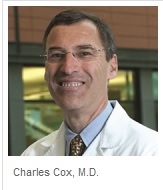HOUSTON – A stem cell therapy previously shown to reduce inflammation in the critical time window after traumatic brain injury also promotes lasting cognitive improvement, according to pre-clinical research led by Charles Cox, M.D., at The University of Texas Health Science Center at Houston (UTHealth) Medical School.
The research was published in the November 2013 issue of Stem Cells Translational Medicine.
Cellular damage in the brain after traumatic injury can cause severe, ongoing neurological impairment and inflammation. Few pharmaceutical options exist to treat the problem. About half of patients with severe head injuries need surgery to remove or repair ruptured blood vessels or bruised brain tissue.
A stem cell treatment known as multipotent adult progenitor cell (MAPC) therapy has been found to reduce inflammation in mice immediately after traumatic brain injury, but until now, no one had been able to gauge its usefulness over time.
The research team led by Cox, the Children’s Fund, Inc. Distinguished Professor of Pediatric Surgery at the UTHealth Medical School, injected two groups of brain-injured mice with MAPCs two hours after the mice were injured and again 24 hours later. One group received a dose of 2 million cells per kilogram and the other a dose five times stronger.
After four months, the mice receiving the stronger dose not only continued to have less inflammation—they also made significant gains in cognitive function. A laboratory examination of the rodents’ brains confirmed that those receiving the higher dose of MAPCs had better brain function than those receiving the lower dose.
The study indicates that intravenous injection of MAPCs may in the future become a viable treatment for people with traumatic brain injury, he said.
Source: UTHealth






